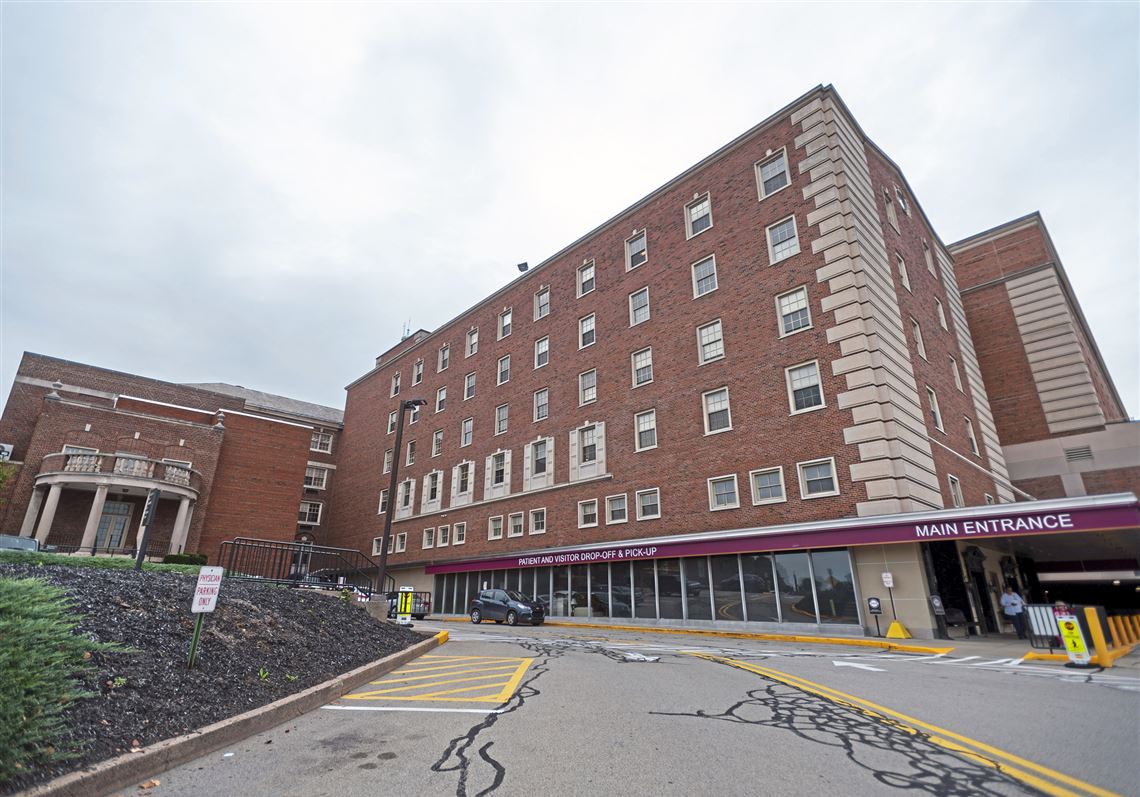COVID-19 has been hammering community hospitals with higher costs for labor and medical supplies, with even Pittsburgh’s biggest systems suffering steep operating losses for 2022.
The end result may be fewer community hospitals and higher health costs.
Washington Health System is the latest independent hospital system to engage in talks with larger hospital networks, which could result in an acquisition or expanded partnership with the smaller Washington County network.
Three people with knowledge of the negotiations, but who were not authorized to speak publicly about them, confirmed that WHS was involved in merger negotiations with Highmark Health and other larger medical systems.
When asked about the reports of merger negotiations, Highmark spokesman Dan Laurent said in a statement that “we are routinely engaging in discussions with independent providers in the region about how we can work together to better meet the health care needs of the community.” He declined further comment.
UPMC, which has ties to Washington Health System, declined to comment on the WHS talks, as did WHS officials. A spokesman for DuBois-based Penn Highlands Healthcare, which operates Monongahela Valley Hospital in Washington County and Highlands Hospital in Fayette County, said he was not aware of talks at Washington Health System.
WHS operates the 244-bed Washington Hospital, which traces its roots to 1897, and the 23-bed Washington Health System-Greene in Waynesburg, acquired in 2016, and provides medical care services at 40 sites in three counties. WHS also operates the Wilfred R. Cameron Wellness Center in South Strabane and a nursing school.
UPMC collaborates with Washington Hospital to provide cancer care. The Downtown-based health care giant also operates a pediatric urgent care center near Washington’s emergency room.
WHS has no bond debt, buffing its image as an acquisition target. But an acquisition may not be the only result of the talks at WHS.
In 2017, Highmark Health and Penn State Health inked a strategic partnership that included a commitment for a shared $1 billion investment in a community-based health care network. The deal also gave Highmark three seats on Penn State Health’s 15-person board.
“We want to collaborate with forward thinking partners who, like us, are committed to creating a positive health care experience,” Highmark President and CEO David Holmberg said in a prepared statement at the time.
Highmark’s AHN already owns the 104-bed Canonsburg Hospital in Washington County, 6 miles from Washington Hospital.
The merger of Excela Health and Butler Health System in January leaves WHS, Heritage Valley Health System and St. Clair Health System as the Pittsburgh area’s only remaining so-called bridge hospitals, which have historically defended their independence and low cost of care. But that dynamic has frayed.
Escalating labor costs and other COVID-19 pandemic-related expenses have pushed independent community hospitals to the brink as patient volumes have slipped, igniting a search for alliances with bigger systems for financial stability.
Among the steepest declines in the number of patients discharged from the hospital was at Butler Health System, which reported a 15.1% drop for the six months ending Dec. 31 when compared to a year ago. BHS reported a $16.6 million loss from operations for the six months.
Excela reported a 6.3% decline in admissions and a net loss of $13.7 million for the same period.
Even the region’s biggest operators have been stressed: Highmark’s AHN and UPMC each reported steep operating losses for 2022 with flat or declining number of patients treated.
Although hospital mergers and acquisitions can stabilize smaller community hospitals, studies suggest the deals increase health care costs with little or no benefit in the quality of care that patients receive.
“Hospital acquisition by another hospital or hospital system was associated with modestly worse patient experiences and no significant changes in readmission or mortality rates,” according to a 2020 New England Journal of Medicine study. “Taken together, these findings provide no evidence of quality improvements attributable to changes in ownership.”
In a new report, the American Hospital Association touted the benefits of small and rural hospitals merging with bigger health systems as “one of the most important tools that hospitals can use to increase access and quality of care and manage risk and financial pressures.” An AHA data analysis found that slightly more than half of the hospitals that closed between 2010 and 2020 were independent.
“Health systems typically acquire rural hospitals when these hospitals are under financial distress,” the report noted.
The smaller partners in these deals can often benefit financially from tying up with a big health care system — piggybacking on the larger institution’s reimbursement rates from commercial insurers, for example. Moreover, advocates say easier recruitment of doctors and other medical specialists and lower borrowing and equipment costs are among the advantages of mergers.
But lower quality of care at higher costs can be another outcome of these deals, said Harold D. Miller, president and CEO of Downtown-based Center for Healthcare Quality and Payment Reform.
A 2020 report by the Medicare Payment Advisory Commission, an independent agency that advises Congress on health care issues, found the “preponderance of evidence suggests that hospital consolidation leads to higher prices” as big systems leverage size to exact increases in payment for services.
“Big systems use power to raise prices, but there’s less attention to quality of care because there’s no competition,” Mr. Miller said. “The idea that you can’t provide quality health care unless you’re part of a big system is just plain wrong.”
Kris B. Mamula: kmamula@post-gazette.com
First Published: March 28, 2023, 9:30 a.m.
Updated: March 28, 2023, 8:03 p.m.

















